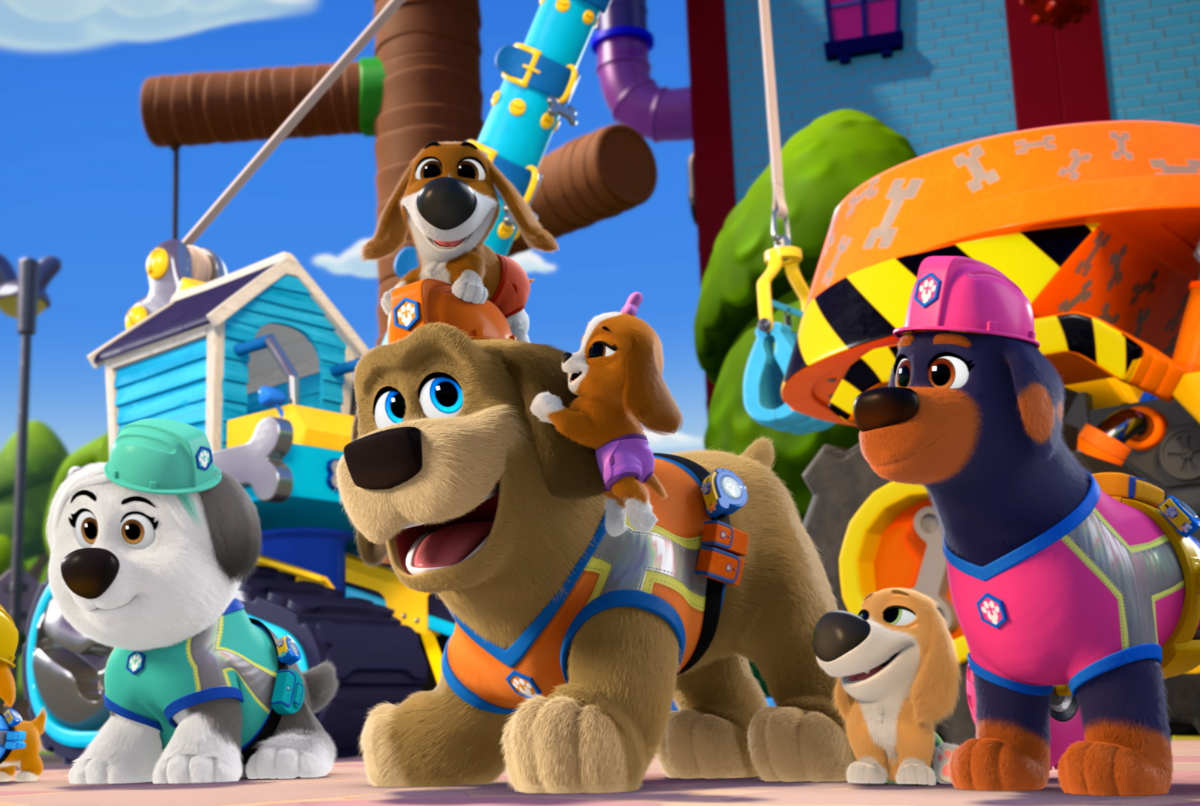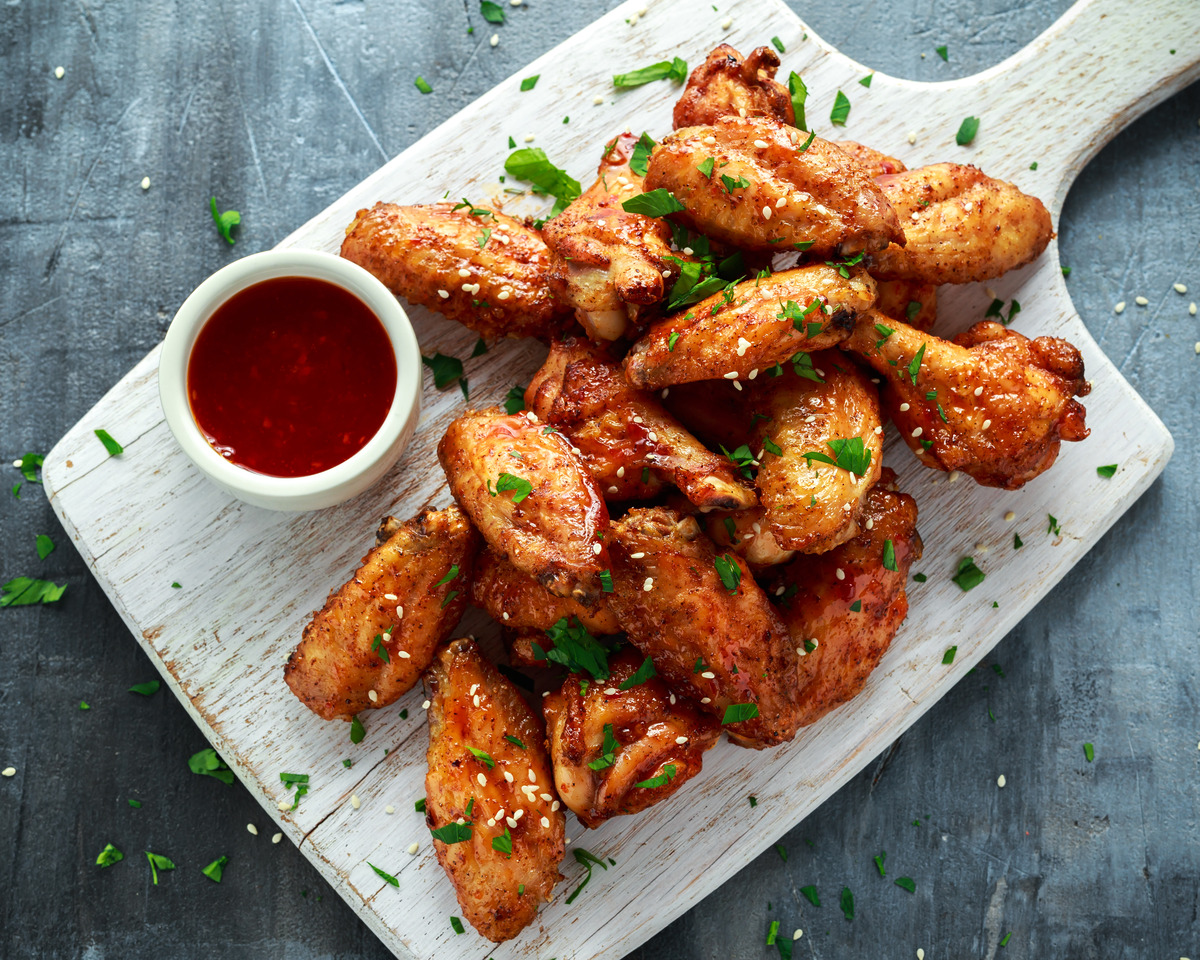Animal fashions for COVID-19_ advances, gaps and views

Non-human primate
Non-human primates share nice similarity with people by way of physiological traits and immune regulation. Intensive efforts have been made to develop COVID-19 illness fashions in NHPs. Rhesus macaques (Macaca mulatta), Cynomolgus macaques (Macaca fascicularis), African inexperienced monkeys (Chlorocebus sabaeus), Baboon (Papio hamadryas) and customary marmoset (Callithrix jacchus) have been employed as fashions of SARS-CoV-2 an infection, whereby the primary two are the commonest choice (Desk 2). It’s price mentioning that NHPs are dealing with huge demand and hovering prices, so it might be obligatory to seek out different fashions.
Desk 2 SARS-CoV-2 non-human primate fashions Full dimension desk
Rhesus macaques exhibit delicate medical illness and supporting excessive stage of viral replication within the respiratory tract just like people. Delicate fever, physique weight reduction, decreased urge for food and hypoxia are widespread reported signs. Often, asthenia, lower in platelet counts, transient neutropenia and lymphopenia have been additionally reported.223 Rhesus macaques show a number of histopathological lesions just like these noticed in sufferers, similar to pulmonary discoloration, consolidation, hyperemia, glass opacity, infiltrates, hemorrhage, scar, necrosis and interstitial pneumonia.224 Lesions within the liver and spleen have been reported as properly. Though Rhesus macaques COVID-19 illness mannequin recapitulates human signs most carefully,223 some typical medical signs, together with acute respiratory misery syndrome, weren’t noticed, which limits its utility for mode detailed research of COVID-19.
Cynomolgus macaques exhibit restricted medical signs, together with delicate fever and weight reduction, nasal discharge and elevated ranges of liver-related enzymes when challenged with SARS-CoV-2 by way of the intranasal or intratracheal route.129,131,132,133,223 Pulmonary consolidation is a typical histopathological lesion in Cynomolgus macaques,225 as is noticed in medical sufferers. One other pathological change exhibited in COVID-19 sufferers, diffuse alveolar injury (DAD), was additionally noticed on this animal mannequin.225 Along with the respiratory system, lesions within the liver and spleen additionally have been noticed in Cynomolgus macaques.223 Just like Rhesus macaque, excessive ranges of viral RNA have been detected within the respiratory tract of challenged Cynomolgus macaques, though that they had decrease viral hundreds and shorter period of viral shedding.226
A number of medical indicators have been additionally seen in challenged African inexperienced monkeys, together with transient fever, decreased urge for food, hypercapnia, lymphocytopenia and thrombocytopenia, elevated liver-related enzymes, elevated monocytes,134,226,227,228 and crucially, acute respiratory misery syndrome (ARDS).228 ARDS, the widespread and sometimes deadly attribute signal of extreme COVID-19, is sustainably noticed in aged African inexperienced monkey, whereas being troublesome to copy in different NHPs. African inexperienced monkeys, particularly aged animals, are a fairly helpful mannequin for mirroring extreme illness manifestations, notably ARDS.228 Moreover, viral pneumonia, extreme pulmonary consolidation with hemorrhage and infiltration, intensive pulmonary lesions and gastrointestinal abnormalities have been additionally noticed in contaminated animals. Frequent histopathological lesions embody pulmonary discoloration, opacity, bronchiolization, hyperemia and pleural adhesions.227 In comparison with Rhesus macaques, African inexperienced monkeys exhibit extra extreme consolidation and edema of lung lobes.226
In contrast with macaques, baboons exhibited extra extreme histopathological lesions, extended viral RNA shedding, considerably extra lung irritation,229 in addition to exhibiting age-related results. In contrast, no or solely very delicate medical signs (delicate fever) have been reported in widespread marmosets inoculated with SARS-Cov-2.229 Milder interstitial and alveolar pneumonitis have been reported in marmosets, in comparison with in macaques or baboons.229 It’s regarded as much less inclined to COVID-19 infection223,229 (Desk 2). In sum, rhesus macaques are the most well-liked NHPs for COVID-19 illness as a result of they’re commercially accessible and manifest the medical signs fairly properly. Cynomolgus macaques normally current pulmonary consolidation however present weak medical signs. In distinction, African inexperienced monkeys usually exhibit extreme signs, however their shortage significantly restrict the utilization. However, pure protecting immunity, similar to innate in addition to humoral and mobile immune responses, might be induced in these NHPs.
Mouse fashions
Stably inherited genetically modified mouse fashions
Mice and different rodents are probably the most extensively used experimental animals. Nonetheless, wild-type rodents usually are not spontaneously permissive for SARS-CoV-2 an infection, as a result of the virus can effectively bind human ACE2 (hACE2), however not mouse Ace2 (mAce2). The expression of hACE2 was discovered to be associated to cardiovascular and pulmonary diseases230 and it was additionally discovered to be a receptor of assorted coronaviruses together with SARS-CoV-1146 and SARS-CoV-2.181 Stably inherited genetically engineered mouse fashions expressing hACE2, which leads to nice susceptibility, are important for the preclinical analysis of vaccines and medicines towards SARS-CoV-2.
A number of genetically modified hACE2 mouse fashions, pushed by particular promoters and established by way of precision knock-in or random transgenic applied sciences (Desk 3), have been tailored for analysis on heart problems and coronavirus an infection.114,138,231,232,233 These mouse fashions have varied backgrounds and may obtain steady expression of hACE2 in a number of organs. Nonetheless, variations of hACE2 expression patterns in mouse fashions, completely different SARS-CoV-2 strains, in addition to various an infection routes and viral doses, result in completely different medical manifestations and pathological adjustments (Desk 4). SARS-CoV-2 is transmitted by the respiratory tract, so most research in Desk 4 depend on the intranasal path to infect the mannequin animals with SARS-CoV-2, apart from hACE2-KI mice which have been contaminated by intragastric inoculation.114 In contrast to the higher respiratory tract indicators (similar to cough and dyspnea) that people are probably to develop after an infection with SARS-CoV-2,234 weight reduction is the obvious and necessary medical register mice. Nonetheless, impaired lung operate was noticed in sure HFH4-hACE2 and K18-hACE2 mouse an infection fashions (the background for these transgenic mice, see Desk 3), together with respiratory misery,235 markedly irregular lung biomechanics236 and labored respiration.163 SARS-CoV-2 an infection is normally confined to the respiratory tract in most hACE2 mouse fashions, however the mind will also be a goal organ, suggesting nervous system invasion secondary to respiratory infections.114,163,235,236 Surprisingly, the SARS-COV-2 virus with broad organ tropism replicated in K18-hACE2 mice contaminated with intermediate viral titers (nCoV-WA1-2020).163 The animals exhibited systemic an infection, with virus detectable within the nasal epithelium, trachea, lungs, coronary heart, spleen, liver, kidneys, abdomen, giant gut, small gut and mind. In one other K18-hACE2 mouse mannequin, the an infection of nasal epithelial cells, particularly supporting sustentacular cells could also be related to anosmia as a significant manifestation in delicate illness.50,164,237 By intranasal inoculation of K18-hACE2 transgenic mice with increased viral doses (2 × 103 and a couple of × 104 PFU) or decrease doses (2 × 101 and a couple of × 102 PFU), a mannequin recapitulating each non-severe and extreme COVID-19 an infection have been established, respectively.238
Desk 3 The essential info of hACE2 inheritable genetic modified mice Full dimension desk
Desk 4 SARS-CoV-2 fashions established with stably inherited genetically modified mice Full dimension desk
Lung histopathology verify indicated that the hACE2 mouse mannequin is able to mimicking pneumonia related to extreme SARS-COV-2 an infection, with diffuse alveolar injury,237 interstitial pneumonitis114,163,235,239 and inflammatory or lymphocytic infiltrates.114,163,235,236,239,240,241 Notably, the hACE2-KI mouse an infection mannequin exhibited distinct vascular system harm and pathological development associated to the age of the mice.114 Furthermore, the thrombosis attribute of important sickness was noticed within the K18-hACE2 mouse an infection mannequin.164 At current, most research on immunological processes that affect COVID-19 in mouse fashions are primarily based on K18-hACE2 mice, which replicate adjustments within the immune response of the lungs. Specifically, a number of chemokines (CCL2, CCL3, CCL4, CXCL1, and CXCL10) and inflammatory cytokines (TNFα, IL-6, and G-CSF) related to the severity of COVID-19 illness in people are extremely expressed in these fashions.221,236,242,243 In aged mice, the interferon and adaptive antibody responses to the SARS-CoV-2 problem are considerably impaired, leading to more practical virus replications and extreme illness manifestations.244 Importantly, these clinically related pathological findings are useful for finding out the pathogenesis of SARS-CoV-2 in vivo.
Mouse fashions sensitized by Ad5-hACE2 or AAV-hACE2 transduction
As a result of the mouse ACE2 receptor doesn’t help viral binding, wild-type mice usually are not permissive to SARS-CoV-2 an infection.170,245,246 To sensitize the wild-type mice, adeno related vector or adenovirus 5 expressing hACE2 (AAV-hACE2, Ad5-hACE2) have been used to transduce mice intratracheally, inflicting hACE2 expression in lung tissues, which enabled viral entry and an infection (Desk 5). Completely different from stably inherited transgenic mice, these sensitized mice specific hACE2 in respiratory tract, particularly within the lungs, and the expression sample is completely different from each transgenic mice and human.41,247,248,249,250 Upon an infection with SARS-CoV-2, the virus replicates within the lungs of hACE2 mice for a number of days to 2 weeks, relying on the mouse pressure used (Desk 5).251 Immunodeficient mice similar to IFNAR−/− and STAT1−/− introduced delayed virus clearance, whereas in immunocompetent mice rapidly cleared the virus.252 The challenged C57BL/6 mice transduced with AAV-hACE2 developed the traits of reasonable interstitial pneumonia, together with inflammatory infiltration in peri-bronchia, diffuse an infection inside alveolar epithelia, growth of pulmonary infiltrating myeloid-derived inflammatory cells in addition to the recruitment of monocyte-derived macrophages and inflammatory cells.252 Viral an infection within the BALB/c or C57BL/6 mice transduced with Ad5-hACE2 induces extreme irritation within the higher and decrease respiratory tract, together with the infiltration of inflammatory cell from perivascular to interstitial zones necrosis, the aggravation of alveolar edema, vascular congestion and hemorrhage.179 Accompanied by the pathological adjustments, there have been vital medical indicators within the mice transduced with Ad5-hACE2, whereas there have been no vital medical indicators within the mice transduced with AAV-hACE2, which had a decrease viral load.252
Desk 5 Mouse fashions sensitized by Ad5-hACE2 or AAV-hACE2 transduction Full dimension desk
The immune response is essential for antiviral protection and lymphopenia is widespread in extreme circumstances of SARS-CoV-2.253 Thus, the fashions primarily based on immunocompromised mice can mimic the extreme outcomes and options of SARS-CoV-2 an infection in people. Within the IFNAR knockout mice transduced with AAV-hACE2, the recruitment of Ly6Chi monocytes and monocyte-derived macrophages was abolished, the activation of CD4+, CD8+ or NK cells was inhibited, and the buildup of neutrophils was elevated as a substitute.254 The inflammatory traits of IRF3/7−/− mice are just like IFNAR−/− mice transduced with AAV-hACE2, however the viral load is considerably increased within the latter (Desk 5). Ad5-hACE2 transduced STAT1−/− mice are probably the most permissive to SARS-CoV-2.179 Total, the excellent benefit of AAV- or Ad5- transduced mice mannequin is the fast acquisition of inclined animal fashions for emergency wants, however such illness fashions can solely mimic restricted physiological options of SARS-CoV-2 an infection.
Fashions primarily based on mouse-adapted strains of SARS-CoV-2
It’s of nice significance to review the pathogenicity of viruses by analyzing the rising mutations of mouse-adapted pressure.255,256 Huang et al. passaged the SARS-CoV-2 WuHan-Hu-1 pressure in 1-year-old BALB/c mice. Lung homogenates have been used to intranasally inoculate younger mice, and after 11 rounds, the mouse-adapted virus pressure WBP-1 was generated. In comparison with its ancestral pressure, WBP-1 confirmed elevated infectivity in BALB/c mice and triggered extra extreme interstitial pneumonia. Sequence evaluation revealed that the Q498H mutation emerged after just one passage, and the Q493K mutation occurred in passage 5, which probably contributed to the excessive pathogenicity of WBP-1 in mice.257 Additional, the 2 mutations are each positioned within the RBD, and considerably elevated its binding affinity for mouse ACE2. The examine tentatively discovered that the TLR7/8 agonist resiquimod was capable of defend mice towards WBP-1 problem, indicating that this mouse-adapted mannequin could also be used as a device for investigating COVID-19 therapies.
The proposed mannequin ought to s recapitulate the principle options of SARS-CoV-2 an infection in people, supporting environment friendly viral replication in each the higher and decrease respiratory tracts.258 Wang et al. intranasally inoculated used 4- to 6-week-old feminine BALB/c mice with SARS-CoV-2 HRB26, and after for 14 passages the mouse-adapted pressure HRB26M was generated. Delicate pathological adjustments have been noticed in wild-type BALB/c mice when challenged with this pressure, demonstrating that SARS-CoV-2 efficiently tailored to contaminate the higher and decrease respiratory tract of younger BALB/c mice.259 Gu et al. reported a extra fast methodology, which they used to generate the mouse-adapted pressure named MACSP6, after solely six passages in BALB/c mice.260 The important thing RBD mutation (N501Y) was noticed on this pressure. After an extra 30 passages, a extra virulent mouse-adapted pressure named MACSP36 was generated, which elicited typical respiratory signs in 9-month-old mice, particularly tachypnea was exhibited in all moribund animals.256
Along with accumulating mutations by serial passages, exact reverse genetic expertise was employed to quickly set up mouse-adapted strains (Desk 6). Dinnon et al.261 used reverse genetics to rework the S and mAce2 binding interface, leading to a recombinant virus, named SARS-CoV-2 MA. This virus utilized mAce2 for entry, and confirmed extra clinically related phenotypes than these seen in hACE2 transgenic mice, demonstrating its utility. With additional passaging, the pressure resulted in a linear lower of physique weight in challenged BALB/c mice. Moreover, 10-week-old BALB/c mice challenged with the mouse-adapted pressure MA10 exhibited a lack of pulmonary operate, accompanied by elevated morbidity and mortality. A examine additionally reported that 10-week-old C57BL/6 J mice exhibited much less extreme illness when infected262 (Desk 6).
Desk 6 Fashions primarily based on mouse-adapted pressure of SARS-CoV-2 Full dimension desk
Humanized mouse fashions with engrafted human tissues or cells
The human immunological mechanisms defining the medical consequence of SARS-CoV-2 an infection stay elusive. Though the animal fashions inclined to SARS-CoV-2 have been accessible,131,133,210,220,230,240 an in-depth understanding of the immunopathogenesis has been hindered by the huge distinction in each immune responses and lung environments between people and animal fashions.263,264 That stated, the SCID-hu lung mouse mannequin has been proved to be another method to resolve this downside because it exhibits fast virus replication, extreme lung injury, and sturdy pro-inflammatory responses.265 To ascertain this mannequin, human fetal lung tissues have been surgically grafted into the dorsal pores and skin of SCID mice and have been allowed to develop for about 8 weeks adopted by SARS-CoV-2 virus problem by direct injection into the engrafted lung tissues.265
Nonetheless, optimum humanized mouse fashions ought to carry not solely human useful lung tissues but additionally the human immune system, thereby extra exactly recapitulating human immunopathology. A mouse mannequin co-engrafted with human fetal lung tissues and a myeloid-enhanced human immune system was created just lately,263 which might function a greater mannequin than the one solely engrafted with human fetal lung tissues to determine mobile and molecular correlates of lung safety towards SARS-CoV-2 an infection. These mice exhibit extreme inflammatory and histopathological phenotypes, that are related to macrophage infiltration and differentiation and the upregulation of genes concerned within the sort I interferon signaling pathway.263 Taken collectively, engrafted mice fashions are another and complementary method to the at the moment used human lung organoid model265 for the research on the immunopathology of SARS-CoV-2 an infection. Nonetheless, the restricted provide of human tissues and immune cells makes the scale-up troublesome. Furthermore, the problem route by direct injection is kind of completely different from the medical an infection.
Syrian hamster fashions
Syrian hamsters have been proven susceptibility to SARS-CoV-1 multiple decade in the past, and have been confirmed to be inclined to variable SARS-CoV-2 isolates just lately. In accordance with these findings there may be nice sequence similarity between human ACE2 and that of hamsters.29,165,233,266,267,268,269,270 Respiratory and pulmonary illness, accompanied by weight reduction, happens in hamsters upon an infection.271,272 Weight reduction is the principle medical signal which serves because the indicator of an infection severity, however is reversed later. Viral load might be detected within the respiratory tract, together with bronchial epithelia cells, sort I and sort II alveolar epithelial cells and macrophages, that are additionally targets in human lung tissues by SARS-CoV-2.273,274,275,276,277 Virus replication in these tissues reaches the height on the early stage after an infection, adopted by a fast decline. Nonetheless, virtually no viral RNA might be discovered within the spleen, kidneys, blood, duodenum and mind of contaminated hamsters, besides in some excessive circumstances.273 Virus propagation is accompanied by irritation, tissue injury,278,279 and lung abnormalities have been present in SARS-CoV-2 challenged hamsters, together with interstitial pneumonia, inflammatory cell infiltration, alveolar septal thickening and distinctive vascular system harm.280 Afterwards, a macrophage-dominated pulmonary immune response was induced.278 Sia et al. additionally noticed the infiltration of CD3+ T lymphocytes and monocytes within the peribronchial area after an infection.279 After lung injury and histopathological adjustments brought on by virus replication, the viral load decreased quickly and lung injury resolved within the subsequent days of an infection. The histopathological adjustments in arterial and venous endothelium of hamsters have been according to endotheliosis in human SARS-CoV-2 an infection.273,281
Some research confirmed long run injury to different physiological techniques together with the olfactory sensory system, reproductive system and cardiovascular system.282,283,284,285,286,287 Cardiovascular pathologies have been present in feminine hamsters with late-stage SARS-CoV-2 an infection, together with myocardial interstitial fibrosis, in addition to thickening of ventricular partitions and the interventricular septum.284 As well as, SARS-CoV-2 an infection adjustments the serum lipid and metabolite profiles of the hamsters, which was additionally noticed clinically in human sufferers.284 One other examine revealed that SARS-CoV-2 an infection triggered reproductive issues in male hamsters, together with acute lower of the sperm rely and serum testosterone, in addition to diminished testicular dimension and serum intercourse hormone ranges for months after an infection.288 The circulating pressure Omicron was discovered to trigger comparable adjustments, however vaccination protected male hamsters from the testicular injury.288
Based on the medical manifestations, SARS-CoV-2 causes extra extreme outcomes in males than in females, and intercourse variations of acute and persistent injury after an infection have been additionally studied within the hamster mannequin.289 As well as, Osterrieder et al. revealed that the development of SARS-CoV-2 in Syrian hamsters is age-dependent, since viral replication within the higher and decrease respiratory tract was completely different based on the age of hamsters. Consequently, older hamsters exhibited extra extreme medical indicators, similar to weight reduction.273
The shut contact transmission mannequin was additionally examined in hamsters, demonstrating that cohousing contact with SARS-CoV-2-carrying hamsters is an environment friendly technique to unfold the illness. On the identical time, it was discovered that mRNA-HB27-LNP has a prophylactic impact towards SARS-CoV-2 transmission by shut contact.280 It was additionally demonstrated that immunosuppressed hamsters are inclined to low-dose virus inoculation, whereas growing extra extreme and extended illness.290,291,292 Brocato et al.203,204 uncovered cyclophosphamide immunosuppressed and Rag2 knockout hamsters to SARS-CoV-2 by the respiratory route to check this speculation.293,294 Though the ACE2 of hamsters can be utilized as a cell entry receptor by human SARS-CoV-2, a number of the contact residues in hACE2 usually are not conserved, leading to diminished susceptibility to an infection.295 Halfmann et al.296 used the hACE2 transgenic hamsters to check the infectivity of the Omicron variant. The related research utilizing Syrian hamsters as animal fashions are summarized in Desk 7.
Desk 7 SARS-CoV-2 Syrian hamster fashions Full dimension desk
Ferret and mink fashions
Each ferrets and mink are members of the Mustelidae and are naturally extremely inclined to a number of human respiratory viruses, together with SARS-CoV-1.297,298 Thus, it’s cheap to imagine that SARS-CoV-2 an infection is also studied utilizing these fashions.299 The susceptibility of minks was confirmed by a report on the quite a few infections with SARS-CoV-2 throughout 40 farms in 2020.300 Upon an infection, ferrets confirmed widespread medical signs similar to fever and delicate respiratory signs, however no loss of life was file.299 Virus replication was detectable in nasal washes, saliva, urine, and feces till the eighth day submit an infection (dpi), normally peaking on the third dpi and in some research, declined step by step and fully disappeared by the 14th dpi.243 Ryan et al.301 contaminated ferrets with three SARS-CoV-2 dosages. Within the 5 × 102 PFU dosage group, one among six ferrets displayed viral RNA within the higher respiratory tract, whereas within the 5 × 104 PFU dosage group, viral RNA might be detected within the higher respiratory tract of all ferrets till the 14th dpi. Intermittent positivity occurred from 14 to 21 dpi within the 5 × 106 PFU dosage group.
Pathological examinations revealed delicate bronchial interstitial pneumonia at 7 dpi with 5 × 104 PFU of SARS-CoV-2,301 and no different medical signs or deaths have been noticed. The lungs of contaminated ferrets could show mildly expanded alveolar septa and diffuse interstitial histiocytic pneumonia after an infection with 5.4 × 105 TCID 50 /ml SARS-CoV-2.302 In distinction, contaminated minks displayed reasonable respiratory indicators similar to labored respiration, bronchiolitis, and diffuse alveolar injury (DAD),303 whereas some minks died of an infection.
An impressive utilization of ferrets and mink is for transmission research.299 An infection was reported following direct inoculation, direct contact and oblique contact, in addition to transmission between contaminated and naïve ferrets and minks.299 Completely different from different animal fashions, SARS-CoV-2 might be detected within the nasal cavity of ferrets and they are often contaminated by oblique contact, indicating that ferrets and minks are able to spreading virus, which simulates the transmission route of SARS-CoV-2 in people.24,304,305
Poultry and home animals
There are really huge numbers of poultry and home animals on this planet. Furthermore, they’re important to human life, and have day by day shut contact with people. It’s due to this fact obligatory to handle their potential susceptibility to SARS-CoV-2.24 Cats, canine, chickens, geese, pigs24,306 and sheep305 have been examined as potential animal fashions of COVID-19.41 Sub-adult outbred home cats aged 6–9 months have been intranasally inoculated with 105 PFU of SARS-CoV-2 pressure CTan-H and viral RNA was detected within the higher and decrease respiratory tract, however not within the lung samples.24 Nonetheless, no medical indicators have been reported. As well as, cats are inclined to airborne transmission. It needs to be famous that cats usually are not a regular animal mannequin, with restricted immunological sources and attainable harm to laboratory technicians.24 On account of their aggressiveness, cats are particularly troublesome to deal with in biosafety level-3 containment.41
Obtainable research present that canine (Canis lupus familiaris) exhibit solely very delicate susceptibility to SARS-CoV-2 an infection, and no medical indicators have been recorded, indicating that canine usually are not appropriate for the event of in vivo mannequin.24 As well as, chickens, pigs and geese have been challenged with 105 PFU of the CTan-H SARS-CoV-2 pressure, however the lack of clear outcomes or medical indicators signifies that they aren’t permissive to an infection.24 The susceptibility of embryonated rooster eggs was additionally examined, however they may not help virus replication.304
As generally farmed home ruminant animals, sheep have been additionally just lately investigated as hosts for SARS-CoV-2 an infection,305 additional increasing the vary of animal fashions of COVID-19. Nonetheless, experimentally challenged sheep solely supporting restricted virus replication based on nasal and oral swabs on 1 and three dpi, with virus detectable within the respiratory tract and lymphoid tissues on 4 and eight dpi. An infection of naïve sentinel sheep could happen by way of respiratory droplets or aerosol. Apparently, two SARS-CoV-2 isolates, B.1.1.7-like alpha VOC and its ancestral lineage A, have been used to co-infect sheep, whereby the previous outcompeted its ancestral lineage A,305 presenting experimental proof in animal fashions that VOC alpha has stronger infectivity.
 COVID-19 instigates adipose browning and atrophy via VEGF in small mammals
COVID-19 instigates adipose browning and atrophy via VEGF in small mammals  Understanding virus–host interactions in tissues
Understanding virus–host interactions in tissues  Bivalent SARS-CoV-2 mRNA vaccines improve breadth of neutralization and defend in opposition to the BA.5 Omicron variant in mice
Bivalent SARS-CoV-2 mRNA vaccines improve breadth of neutralization and defend in opposition to the BA.5 Omicron variant in mice  Nationwide Dad and mom Day-Suggestions for Creating Excessive EQ Household
Nationwide Dad and mom Day-Suggestions for Creating Excessive EQ Household  Intranasal immunization with a proteosome-adjuvanted SARS-CoV-2 spike protein-based vaccine is immunogenic and efficacious in mice and hamsters
Intranasal immunization with a proteosome-adjuvanted SARS-CoV-2 spike protein-based vaccine is immunogenic and efficacious in mice and hamsters  Disney Channels June 2023 Programming Introduced
Disney Channels June 2023 Programming Introduced  Fuerteventura, a paradise for water sports activities within the Canary Islands
Fuerteventura, a paradise for water sports activities within the Canary Islands  11 Tasty Locations To Get Your self Some Hen Wings In London This Nationwide Hen Wing Day
11 Tasty Locations To Get Your self Some Hen Wings In London This Nationwide Hen Wing Day  What Larry, the Furry Canary Can Educate Us About ChatGPT’s Potential to Generate Distinctive Content material
What Larry, the Furry Canary Can Educate Us About ChatGPT’s Potential to Generate Distinctive Content material